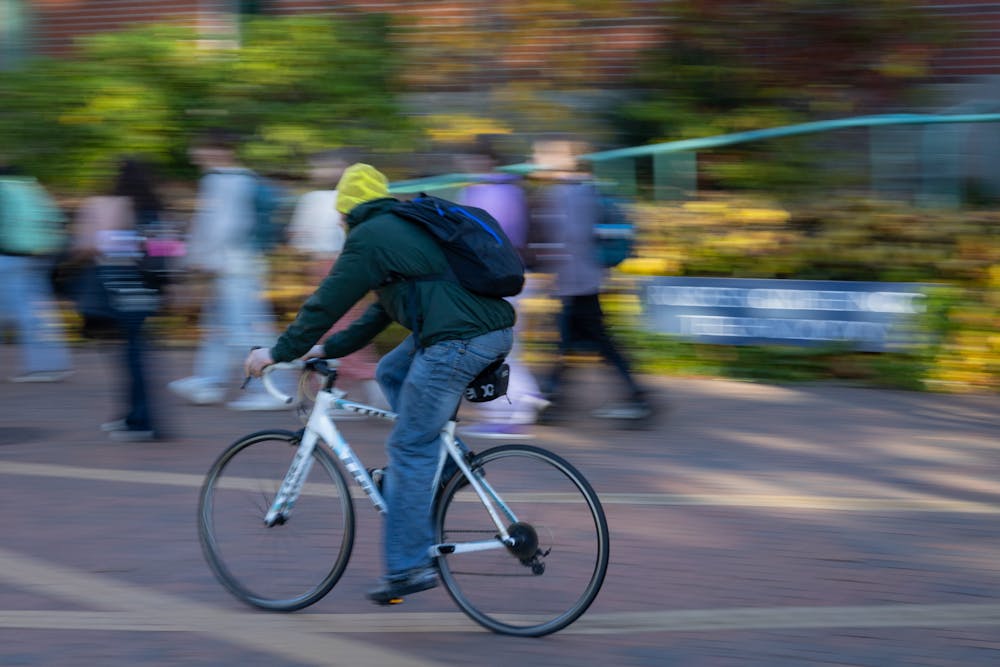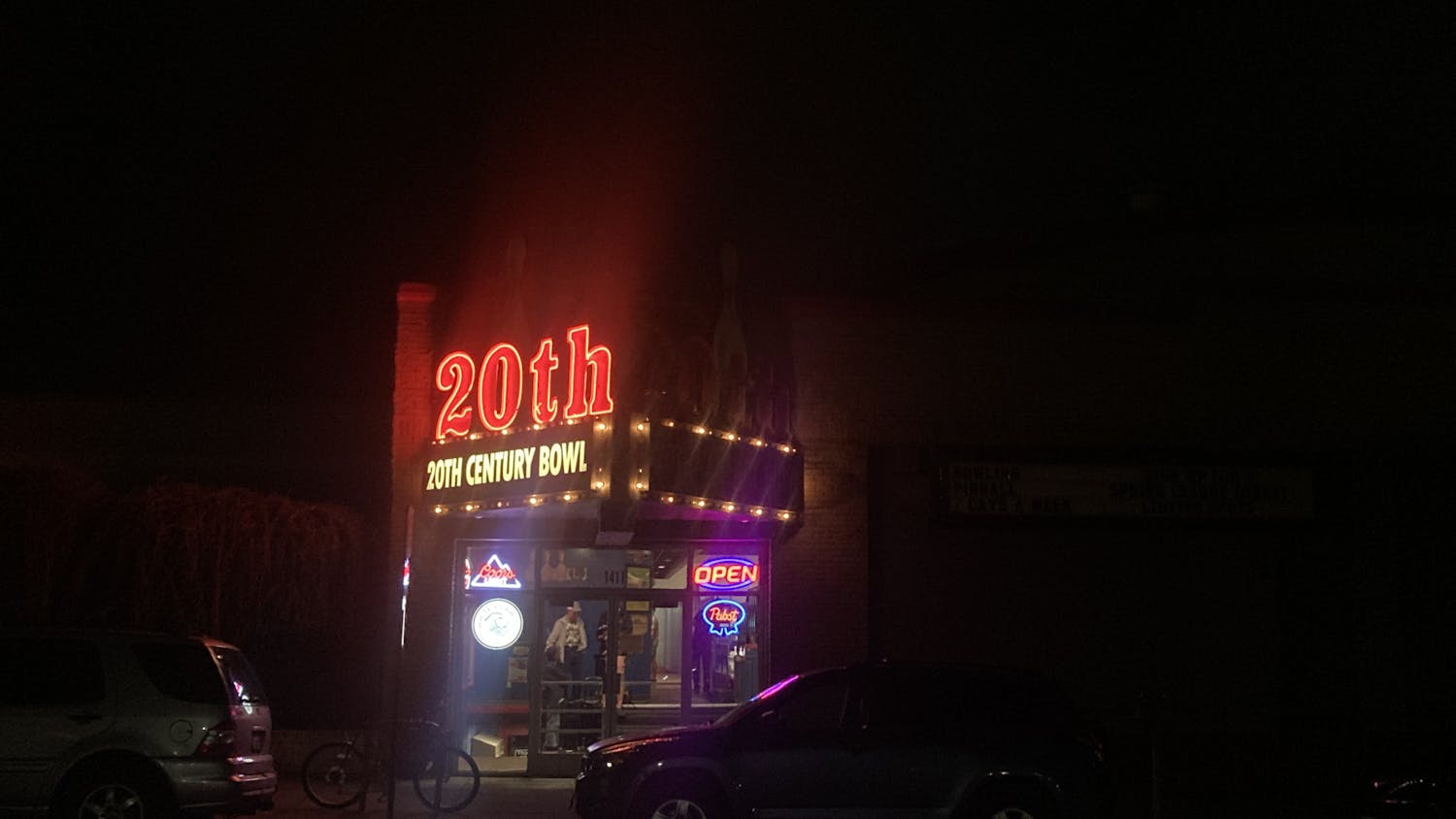High gas prices, increased inflation and record-high greenhouse gas emissions encourage many to consider alternatives to traditional modes of transportation. Electric scooter and bicycle rentals have been a popular choice among cities and universities across the nation, but Bellingham has yet to introduce this emerging technology.
This isn’t for lack of effort, however. The City of Bellingham released a request for proposal, “Bellingham Shared Micromobility Pilot Program,” in March 2020. This proposal expressed the City’s interest in a partnership with a company offering micromobility transportation services, specifically in the form of e-scooters and e-bikes.
This would have been a year-long, small-scale trial exploring the long-term viability of electric micrmobility rentals in Bellingham. However, the proposal was put on hold due to COVID-19.
The proposal was led by the group We Bike Downtown, which included Western Washington University, the City of Bellingham, Smart Trips, Fairhaven Association and Downtown Business Partnership.
“The concept is not dead. It’s still there,” said Andrea Reiter, commute operations program manager at Western Washington University. “We’re trying to figure out [whether we] dodged a bullet by the pandemic making us cancel, or if we really want this service.”
The pilot was originally going to start with e-bikes, Reiter said. But since 2020, e-scooters have become more popular and are now the primary focus.
Whether it be scooters or bikes, Weston Sitterding, co-president of the Western Urban Planners club, believes that everybody should be moving away from cars and towards active modes of transportation.
“I absolutely think that everybody should get out of their cars and onto bikes instead,” Sitterding said.
Sitterding lives in Ferndale and commutes 12.5 miles to Western on his e-bike daily. He sold his car in 2021 and now cycles everywhere, taking public transportation only on days he can’t ride his bike.
“I rode 100 miles last week just to go to classes,” Sitterding said. “I try to be the biggest advocate and practice what I preach. I love cycling.”
Sitterding said he thinks that e-scooters are an incredible technology and transportation method, especially for the “last mile” commute. The last mile is the distance leftover after your main form of transportation, most commonly the distance from the bus to your final destination.
For students getting off the bus on campus who need to make that last stretch to class, e-scooters are a great way to finish that trip, Sitterding said.
However, the biggest concern with e-scooters is the potential for clutter and obstruction of walkways, a problem noted by Sitterding and Reiter.
“Scooters or bikes dumped in the middle of sidewalks become a potential hazard or navigation issue, especially for people who have mobility issues,” Reiter said.
The case of scooters littering the sidewalks is visible, especially in Seattle, Sitterding added.
One way to combat this clutter is with geofencing technology and no-park zones, said John Lankford, senior director of partnerships and policy at Spin, a micromobility sharing company.
Geofencing is the ability to create a virtual geographic boundary. This can be in the form of restricting the speed of a scooter based on its location, determining whether or not it can be operated and where it can and cannot be parked, Lankford said.
“The Internet of Things, or IoT, unit is the brains of the scooter which connects it to our system,” Lankford said. “We have the GPS location of [our scooters] at all times. Because we have those controls, we can create virtual geofences that allow the scooter to respond in real time and behave in different ways depending on where it is.”
Lankford acknowledged that the biggest issue with e-scooters is parking, but is optimistic about the industry's ability to adapt and overcome this hurdle.
“No system involving human behavior is ever perfect,” Lankford said. “But parking [and scooter clutter] is a challenge that we’ve made tons of progress on through a mix of technology, which is getting better all the time, and rider education.”
While e-scooters may be an option for students and residents of Bellingham, the pilot program proposed by the City of Bellingham is still on pause. The partners of We Bike Downtown are looking for a lead organizer to set the program in motion, Reiter said.
“It is a lot of work to go through the request for proposal process,” Reiter said.
In the meantime, Western Transportation Services and On-Campus Housing are working on a program that would enable long-term checkout of traditional bicycles, similar to the dorms’ minifridge and pots and pans checkout system, Reiter said.
“We hope to have bikes entering a checkout system maybe starting next quarter,” Reiter said. “But that’s going to be going through On-Campus Housing, so students who don’t live on campus aren’t eligible.”
An extension of the program which would be available for students living off-campus is still being conceptualized, Reiter said, but she hopes this checkout system can eventually be offered to all students.
“I like being on Western because everything’s within walking or biking distance,” Sitterding said. “I wish that Bellingham was able to disconnect itself from its love of cars. I will always advocate for pedestrian-only streets and bicycle-first infrastructure.”
Kiora Surratt (she/her) is a campus life reporter for The Front. She is a senior majoring in public relations and minoring in English literature. In her free time, she enjoys working out, shopping and spending time with friends and family. You can reach her at kiorasurratt.thefront@gmail.com.






